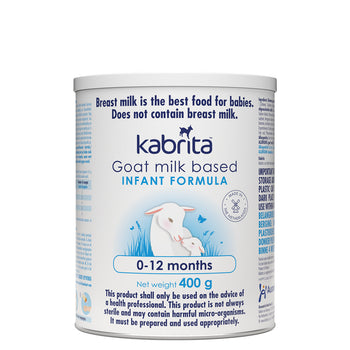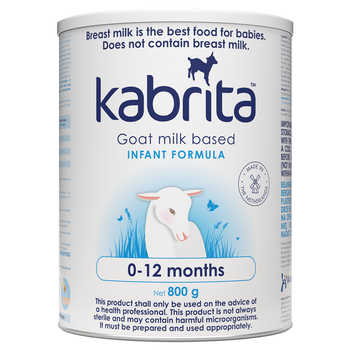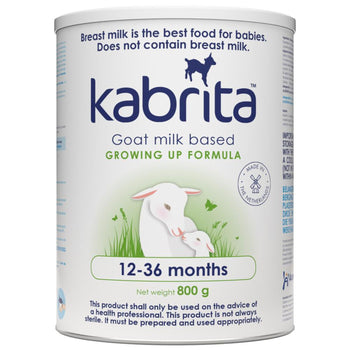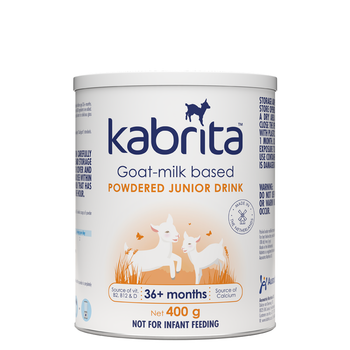Reflux in babies

What is reflux?
In essence, reflex is what happens when stomach contents flow back into the oesophagus. It's common in babies: nearly 90% of children under one suffer from it to a greater or lesser extent. This is because the muscles between the oesophagus and the stomach haven't yet fully developed. In the vast majority of cases, reflux goes away after the first year (at most), once these muscles have fully formed. Even so, reflux is unpleasant for babies and, if if goes on for too long, it can be painful.
Types of reflux
Types of reflux differ. Where babies are concerned, we distinguish between normal, straightforward reflux and silent reflux. With the first type, your child will often bring up some milk. Sometimes it's only a little, sometimes it's a bit more. For the most part this kind of reflux is harmless and related simply to those underdeveloped muscles. As long as your child isn't bothered by it, and doesn't show symptoms such as crying or drinking poorly, you shouldn't have to take any action. With silent reflux, things become a little more complicated. As with ordinary reflux, the child will bring up stomach contents - but they won't spit it out. Instead, they'll re-swallow. In some cases, a baby may chew the food that's been brought up.
Bringing up the acidic contents of the stomach can irritate the oesophagus. Eventually, this can be painful, leading a baby to cry more and drink less. As well as the irritation, prolonged complex reflux can lead your child to have difficulty swallowing, or even coughing up blood. Since children with complex reflux often have problems eating and drinking, they can lose weight and even fall behind in growth. There is also a third variant, atypical reflux, which can be the most serious. With this type of reflux, stomach contents can get into the airways and cause breathing problems, bronchitis, asthma, apnea and throat infections.
Causes of reflux
In most cases, reflux is a result of the underdeveloped muscles between oesophagus and stomach. There are other, less common, causes including chronic constipation, narrowing of the oesophagus or food allergies. A doctor can tell you which applies to your baby.
Symptoms of reflux
As well as frequently bringing up food, reflux can cause several symptoms, which include:
• Crying a lot and seeming unsettled
• Unwillingness to eat or drink
• Lack of sleep
• Frequent hiccuping
• Being sick a lot
• Wanting to be fed again after just a short time
• A sour smell to the baby's breath
Does your baby show many of these symptoms, along with often bringing up (a lot of) milk? If so, consult your doctor, so that they can determine whether your baby has reflux, and whether further treatment is required.
How can I reduce the risk of reflux?
Although nearly every baby spits, bringing up milk like this can be quite annoying - especially when there's a lot of milk and your little one seems to be bothered by it. It's possible to prevent this reflux, or at least to make it more bearable, by:
• Giving your child smaller amounts of milk, spread throughout the day, and keeping your baby upright for at least half an hour after feeding.
• Thickening your baby's diet. Thicker foods flow back more slowly. For thickening food, you can use carob gum. This natural thickener doesn't affect the nutritional value of the food, but can easily be added to both breast and bottle-fed milk.
• Holding your baby close to you. A baby sling can feel good for both mother and child: your baby will feel safe close to you, while you'll enjoy the warmth of your child. Keeping your baby upright in a sling will also help prevent them bringing up food.
Keep in mind that nearly every baby brings up milk - sometimes a lot, sometimes a bit less. Reflux is also usually a temporary thing, and most times it will have gone away by your baby's first birthday. Are you still unsure and concerned about whether your baby is suffering from (silent) reflux? If so, a doctor can often make a quick diagnosis, and can give the right advice for you and your baby.
About Kabrita
Kabrita Goat Milk Formula combines mild Dutch goat's milk with a modern formulation in accordance with the latest scientific research. This produces a complete bottle formula that delivers vital nutrients in a mild and gentle way. Kabrita is produced entirely in the Netherlands from Dutch goat's milk.
Want to stay up to date with the latest news about Kabrita? Then follow us on Facebook.



